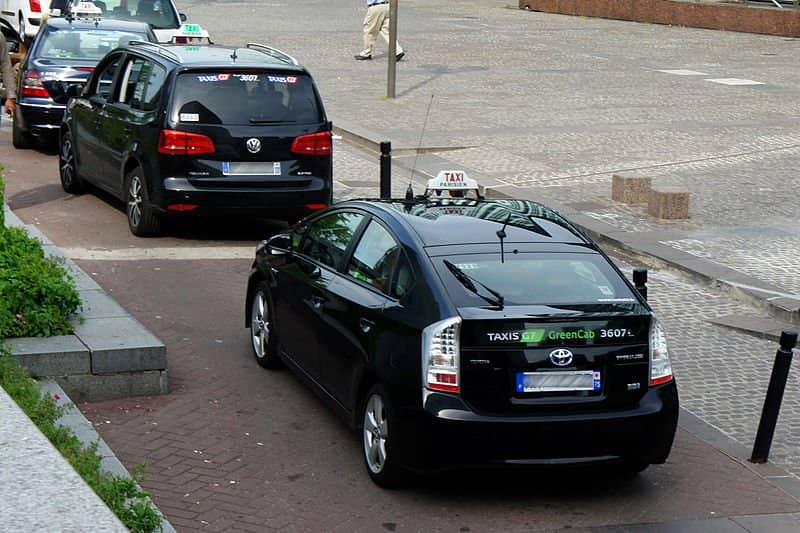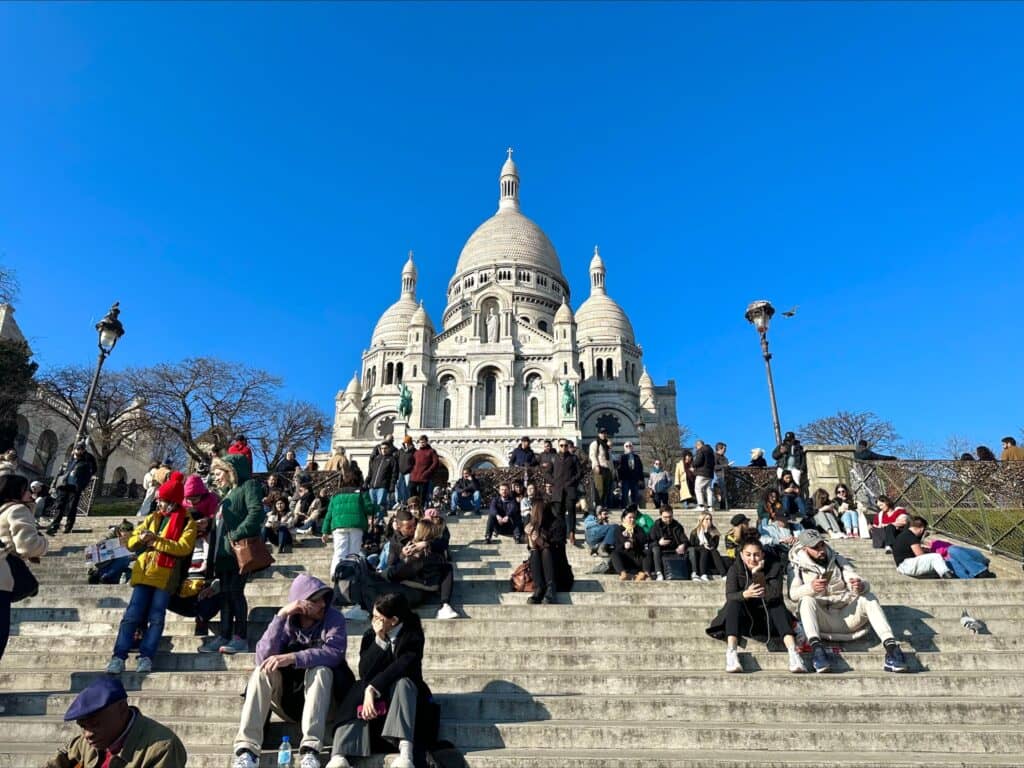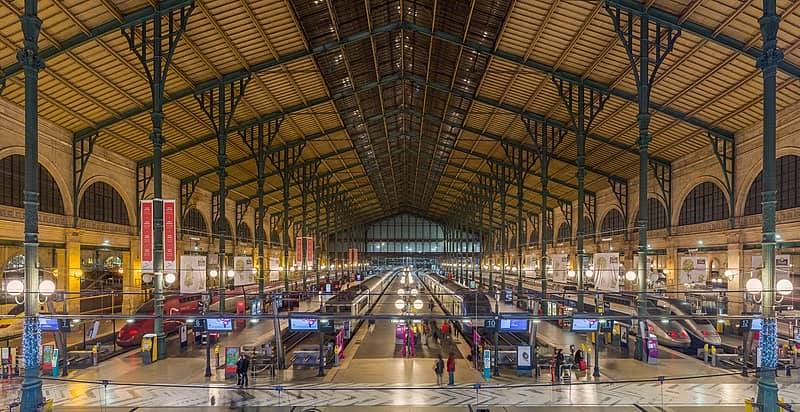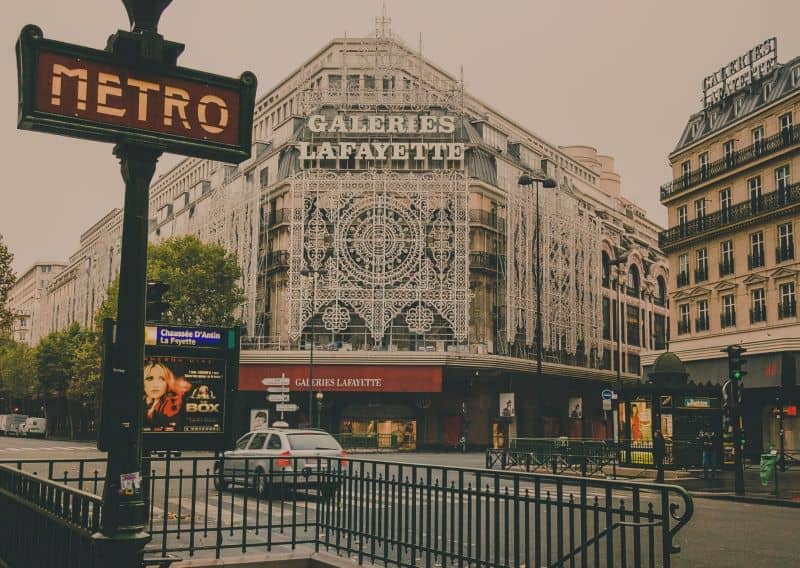Is Paris safe? This question has been on the minds of many travelers, considering the recent global events and concerns about safety in major cities. In this article, we aim to provide a comprehensive and up-to-date analysis of the current safety situation in the vibrant and iconic capital of France.
The City of Lights is widely regarded as one of the world’s most popular tourist destinations. Art and history buffs are drawn to this city, with attractions like the Louvre and Musee d’Orsay, the Arc de Triomphe, Notre Dame and the iconic Eiffel Tower. In Paris, one can also enjoy the world-famous cuisine, relax in the beautiful parks, and explore the historic neighborhoods.
But although it’s important to have fun while in Paris, your safety should always come first. To help you plan a safe visit to the French capital, we compiled a list of the most pressing safety issues in the city, so please read on.
Things you'll find in this article
- Is Paris Safe? What You Need To Know (2024)
- Is Paris Safe?
- Safety Concerns in Paris
- Safety for Solo/Female Travelers
- Places to Avoid
- Safety Tips
- 1. Carefully consider your accommodation options.
- 2. Have Multiple Copies of Important Documents and IDs.
- 3. Be mindful of your possessions at all times on the Metro, but especially at the entrances:
- 4. Stay away from huge gatherings and demonstrations, and be careful if you find yourself in one.
- 5. Learn the French Emergency Numbers.
Is Paris Safe? What You Need To Know (2024)
RELATED READ:
- Is Paris expensive?
- Where To Shop In Paris
- Top Art Classes And Workshops In Paris
- Best Romantic Hotels To Stay At In Paris
Is Paris Safe?
Yes, it is still generally safe to travel to Paris. Pickpocketing, terrorism, and civil unrest are all issues, but overall the city is about as safe as any other major metropolis.
As long as you know what to look out for, Paris is a perfectly safe city. Below, you will find a few things you should know before visiting Paris, but it doesn’t mean you shouldn’t go there. As long as you educate yourself about certain safety concerns, your Paris visit should be trouble-free.
Safety Concerns in Paris
Public Transportation

RELATED READ:
- Amazing English Bookstores in Paris
- Must-See Hidden Gems In Paris
- Fun Things To Do In Paris At Night
- 28 Best Things To Do In Paris
The metro, tram, and buses of Paris are a cheap and convenient method to get around the city. However, it is important to remain vigilant at all times when riding the metro in Paris. Pickpockets, which thrive in busy areas and near popular metro stops, are the primary security concern.
You should also be wary of unofficial cabbies who may approach you and offer you a ride. You can find them at the airport, too, though typically within the terminal rather than where the official taxis are stationed (the “taxi lane”) outside. Never take an unlicensed taxi in Paris; they prey on visitors.
Note that taxis in Paris are typically high-end black sedans with a white “TAXI PARISIEN” sign that flashes green when available and red when occupied. You won’t have to haggle over fares with licensed taxis because they use meters.
Demonstrations and Protests
Large-scale strikes and protests around France, including Paris, have caused delays in transportation, road closures, and minor damage to buildings. In some of these cases, confrontations with police led to the deployment of tear gas and water cannon.
Large-scale demonstrations and protests occur frequently. Riots can break out at any public protest or event that attracts a large crowd. Stay away from any areas where there is heavy police presence or demonstrations.
If you’re worried about how your plans might be altered, you should probably call your travel agent, tour operator, or hotel. Expect major interruptions to public transportation and other services as a result of demonstrations.
Pickpockets
Americans are a common target for pickpockets in Paris. Theft rates for Apple products consistently rank high. This is because Apple products command higher prices in France than in the United States. Parisian pickpockets tend to be young adults.
Avoid being duped by any teenagers who get too close. They could try to take your belongings, such as your phone or wallet, and leave fast.
The safest way to avoid this is to stay alert and close to your valuables at all times. You shouldn’t carry your phone in your back pocket because it’s an easy target for pickpockets.
Scams

RELATED READ:
- 12 Best Covered Passages In Paris
- 15 Instagrammable Spots In Paris
- 10 Best Boulangeries And Bakeries In Paris
There are also many cons to watch out for in the City of Lights. This is not meant to dissuade you from coming; rather, it is meant to serve as a cautionary tale.
The Louvre, Sacre Coeur, and the banks of the Seine are among the city’s most popular tourist destinations, yet they also happen to be hotspots for tourist fraud.
Related Read: Most Common Tourist Scams In Paris And How To Avoid Them
Terrorism
The city of Paris, like many others around the world, has unfortunately been hit by its share of terrorist acts in recent years.
You shouldn’t let that stop you from visiting this amazing European city, though. If we’re talking numbers, the odds of getting hurt or dying in a terrorist strike are much lower than those of getting hurt or dying in an ordinary accident.
Safety for Solo/Female Travelers
Anyone visiting Paris on their own shouldn’t feel unsafe going out and seeing the sights. When compared to their home countries, many solitary visitors report feeling safer in Paris.
All lone travelers should take some basic precautions, such as staying in well-lit areas and avoiding desolate streets, but these are standard operating procedures in any major city.
Night Safety
Paris is still safe at nighttime, but there are some parts of the city where you shouldn’t go alone. Try to stay away from any potentially dangerous areas at night, and remember to always use caution when dealing with strangers.
If you want to check out some nightlife, it’s best to stay near your lodgings. You’ll be able to walk less far, which is a good thing in general but more so if you’ve been drinking.
Safe Neighborhoods

Most areas of Paris are safe. The only potential danger comes from pickpockets in busy tourist areas. No matter where you stay in Paris, as long as you keep your eyes open, you will be fine. However, we have included a list of the three top safe neighborhoods.
Le Marais, 3rd and 4th arr.
Le Marais is a historic neighborhood on the right bank of the Seine in Paris. It is home to some of the world’s best art galleries and most fascinating museums, making it an ideal vacation spot for culture vultures.
Eiffel Tower, 7th Arr.
Everything in this area is within easy walking distance, making it perfect for sightseeing. Still, it’s best to keep an eye out for pickpockets and other forms of petty theft. If you keep your eyes peeled and your senses sharp, you should be fine.
Saint-Germain-des-Pres, 6th Arr.
This neighborhoods has a relaxed atmosphere and several cultural experiences, making it ideal for families and culture vultures. The area is rich in history, culture, art, and gastronomy.
Saint-Germain-des-Pres is conveniently located in the heart of Paris, and it features numerous high-end art galleries, museums, restaurants, and designer stores.
Places to Avoid

RELATED READ:
- 6 Famous Department Stores In Paris
- 16 Things To Do In Paris With Teenagers
- 13 Most Romantic Weekend Trips From Paris
- 10 Best 4-Star Hotels In Paris
- Best 5-Star Hotels In Paris
Paris does not have any designated “no-go” zones, but several neighborhoods have a reputation for being unsafe. These areas are unsafe at night but are fine during the day. Female solo travelers should avoid these areas on foot and instead take an Uber or go in a group. Take caution in the following locations:
- Gare du Nord and Gare l’Est, 10th Arrondissement – these are areas known for pickpockets and other petty thefts.
- Marx Dormoy and Porte de la Chapelle stations, 18th Arrondissement – this area is known for many drunk and homeless people, so their presence might make other people feel uncomfortable.
- Place Stalingrad between the 19th and the 10th arrondissement – an area known for crack dealers and consumers.
Safety Tips
1. Carefully consider your accommodation options.
We recommend that you pick a hotel that’s close to your intended destinations. Problems with transportation safety, especially at night, will be diminished.
Make sure the rooms are safe whether you’re staying in a five-star hotel or a hostel. Check that the hostel you stay in has lockers for your belongings. A personal lock is something you should always have on hand.
2. Have Multiple Copies of Important Documents and IDs.
Having a government-issued photo ID is crucial in France. This could be necessary at any time during your journey, and it could be anywhere in the city. This implies that you cannot leave your original passport or identification card in the hotel safe while you explore Paris with a copy.
However, you should also make duplicates of your identification documents just in case the originals are lost or stolen.
3. Be mindful of your possessions at all times on the Metro, but especially at the entrances:

Bags should be stowed under an arm or worn across the body with a hand over the zipper. The backpack should be worn in front of you. And do not put valuables like phones, cash, or wallets in your rear pockets.
4. Stay away from huge gatherings and demonstrations, and be careful if you find yourself in one.
Keep an eye out for reports of a disturbance in the local media and elsewhere. Always keep an eye out for the police or local authorities to help you out.
5. Learn the French Emergency Numbers.
Write these numbers down on a piece of paper you can keep in your bag and also have them stored in your phone directory.
The Paris/France emergency services numbers are as follows:
- 112 European Emergency Number (any country in the EU)
- 17 Emergency Police
- 15 SAMU (French Emergency Medical Assistance)
- 18 Fire Brigade
- 114 Emergency Number for the Deaf

Hi, I’m Christine – a full-time traveler and career woman. Although I’m from the Philippines, my location independent career took me to over 40 countries and lived in 4 continents in the last 10 years, including France. A self-proclaimed Francophile, I love everything France.
